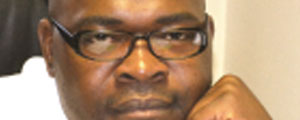
A lot has been written about how Zimbabwe compares with Kenya in many aspects.
Develop me with Tapiwa Gomo
Most of those who attempt to compare the two countries do so on the account that both countries are former British colonies and that they are run by makeshift governments of national unity.
There are some who think Kenya has always been a big brother in many aspects. For every aspect that is comparable with them, they have actually done it earlier, better and are far ahead of us. This is, however, not to undermines ourselves.
Writing a story about how we compare with Kenya requires more time and space. However, the recent elections in Kenya require some analysis.
The road leading to the decision day was marked by everything adorable, beautiful and peaceful. I remember arguing with a Kenyan colleague over what channel to watch between soccer and the Kenya debates.
Their politics is still attractive and has shown maturity compared to 2007. As the election day drew closer, I realised that the number of Kenyans around reduced — they had travelled to cast their votes.
That is how much our Kenyan friends love their country and still believe in the electoral system as a means to express their political choice.
- Chamisa under fire over US$120K donation
- Mavhunga puts DeMbare into Chibuku quarterfinals
- Pension funds bet on Cabora Bassa oilfields
- Councils defy govt fire tender directive
Keep Reading
Surely, most Zimbabweans in the Diaspora would not invest an air ticket just to cast a vote into that ballot box, especially when there is no guarantee that it will count. The most they have done so far is to demand the ballot boxes to be delivered to their different countries so they can also vote.
For those few who are returning home for political reasons, they are doing so to jostle for political positions. The poor township and village politicians have become the new political victims of the Diaspora invasion.
The only admirable factor about that is these are young people wanting to refresh our senescent political lot, but still we cannot compare with Kenyans. They are far advanced in that area.
Dynamics in Kenya have shifted much faster than most of us might have anticipated. Just half decade ago, Raila Odinga represented a new breed of young African leaders, but in the recent election, at 68 years, he was actually the oldest candidate. The youngest candidate is 38 years, something that is yet to be constitutionally accepted in our own Zimbabwe context.
However, despite these disparities, both countries find themselves in almost similar situations. They are fighting to regain not only lost pride, but the political influence they used to enjoy.
Both Kenya and Zimbabwe used to be centres of the regional political ideologies, but they find themselves imprisoned by inconclusive elections in 2007 and 2008 respectively, a situation that has forced them into makeshift governments of nation unity.
This has, however, diminished their regional political influence to an extent that for Zimbabwe, for example, all serious decisions are now referred to Jacob Zuma, the president of South Africa for endorsement before they are implemented.
Similarly, in East Africa, a politically weak and troubled Kenya has allowed Uganda to reign and become the voice of the region. East Africa still lacks leadership to deal with crisis ridden countries like Somalia and perhaps, that leadership can only come from a stable Kenya.
Even as these battles to reclaim lost pride rage on, the political future does not look so promising and bright for both countries.
While the practice of elections is about giving people the opportunity to choose whom they want to govern them, such choices are constrained if not pre-determined and influence by the invisible international community. Kenyans have stood by Uhuru Kenyatta who is indicted by the International Criminal (ICC) for alleged crimes against humanity.
His presidential tenure faces the risk of being cut short, if the ICC ruling goes against him. That should have technically swayed the majority vote towards Raila Odinga who is seemingly preferred by the international community. During the debates, the main question was whether the ICC case should be allowed to determine who should govern Kenya.
Odinga did not miss this opportunity to alert Kenyans that the country could not be governed from The Hague, where Kenyatta goes on trial on 9 July on charges of crimes against humanity. “If we say we run the government through Skype, then there will be challenges,” he said during the debate. Similarly, in Zimbabwe, we have one leader under sanctions while the other is preferred by the international community.
These scenarios raise curious questions about the role of international community in influencing elections and who is internationally acceptable and how the African electorate react to these conditions.
It also raises questions on whether the electorate are emotionally sacrificing their vote just to spite the international community or they are just tired of candidates being imposed on them.
Both Kenyatta and Mugabe are accused of committing human rights crimes and yet on the ballot they still command more or less than 50% of the electorate.
Why would Kenyans vote for someone who is accused of killing them? We witnessed a similar situation unfolding in Egypt in July last year. After toppling Hosni Mubarak, Egyptians decided to use their vote emotionally to spite the USA by electing an un-preferred Mohamed Morsi, from the extreme brotherhood. Since then Egypt has not seen peace in its land where civil society have become the most funded.
Tapiwa Gomo is a development consultant based in Pretoria, South Africa











